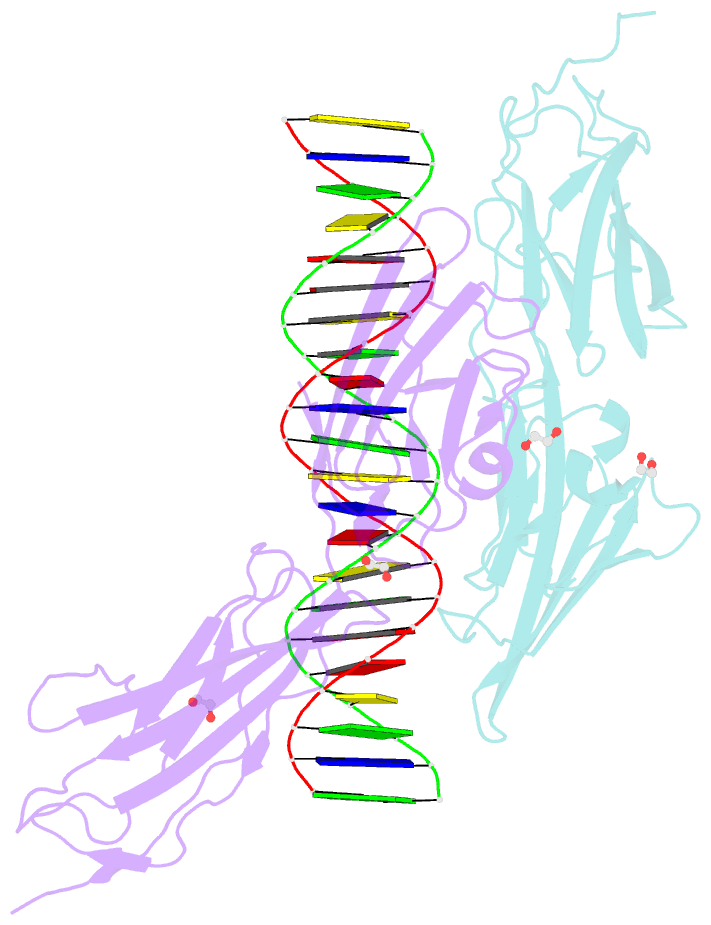Summary information and primary citation
- PDB-id
- 4oi7; SNAP-derived features in text and JSON formats;
DNAproDB
- Class
- transport protein,signaling protein-DNA
- Method
- X-ray (3.104 Å)
- Summary
- Rage recognizes nucleic acids and promotes inflammatory responses to DNA
- Reference
- Sirois CM, Jin T, Miller AL, Bertheloot D, Nakamura H, Horvath GL, Mian A, Jiang J, Schrum J, Bossaller L, Pelka K, Garbi N, Brewah Y, Tian J, Chang C, Chowdhury PS, Sims GP, Kolbeck R, Coyle AJ, Humbles AA, Xiao TS, Latz E (2013): "RAGE is a nucleic acid receptor that promotes inflammatory responses to DNA." J.Exp.Med., 210, 2447-2463. doi: 10.1084/jem.20120201.
- Abstract
- Recognition of DNA and RNA molecules derived from pathogens or self-antigen is one way the mammalian immune system senses infection and tissue damage. Activation of immune signaling receptors by nucleic acids is controlled by limiting the access of DNA and RNA to intracellular receptors, but the mechanisms by which endosome-resident receptors encounter nucleic acids from the extracellular space are largely undefined. In this study, we show that the receptor for advanced glycation end-products (RAGE) promoted DNA uptake into endosomes and lowered the immune recognition threshold for the activation of Toll-like receptor 9, the principal DNA-recognizing transmembrane signaling receptor. Structural analysis of RAGE-DNA complexes indicated that DNA interacted with dimers of the outermost RAGE extracellular domains, and could induce formation of higher-order receptor complexes. Furthermore, mice deficient in RAGE were unable to mount a typical inflammatory response to DNA in the lung, indicating that RAGE is important for the detection of nucleic acids in vivo.





